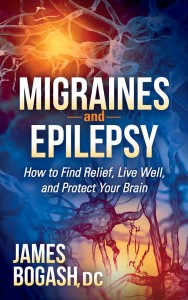
Vitamin B6 and your seizures
It is not in my nature to promote a one cause/one cure mentality. But sometimes certain approaches are so important that they need to be mentioned separately.
This goes for many conditions from diabetes to Alzheimer’s dementia. And certainly over the years I have pointed out research on single approaches that have been proven to help with migraines and seiuzres.
Some approaches, like exercise or the Ketogenic diet, require more much commitment from you. Some, on the other hand, are as simple as a daily supplement. Magnesium, melatonin, fish oils and vitamin D are some examples of interventions that have been demonstrated in medical research to help with seizures and chronic migraine headaches.
Some of these supplements work directly. Fish oils improve the health of the brain cell membrane, ensuring that messages get transmitted appropriately. Magnesium is essential for brain cell to generate energy (in the form of ATP) to function.
This particular article reviews a simple single-nutrient approach that works differently. Pyridoxine is the fancy name for vitamin B6. You may also hear it referred to as P-5-P, or pyridoxine-5-phosphate (the activated form, which skips the need for the liver to activate the B6 molecule).
Pyridoxine plays many roles in the human body, but there are a few functions that rise to the top. Especially when it comes to seizures and chronic migraine headaches.
But before we get into these important functions of vitamin B6, we need to have a brief primer on two different neurotransmitters in the brain:
- Gamma amino butyric acid (GABA) is an inhibitory transmitter in the brain. It calms things down. Applies the brakes to an overactive brain. Think Ativan, benzodiazepines, alcohol, phenobarb .
- Glutamate is the opposite. It is stimulatory and puts your brain cells into overdrive. There are drugs that block the action of glutamate like Ketamine that are used for seizures. MSG will also activate this pathway and this is why so many patients are sensitive to processed foods.
Based on this, it would seem that anything that could increase GABA and decrease glutamate would be a really good thing.
Yeah—you guessed it. Vitamin B6 plays a role in both of these actions.
Which brings us back to the study. Researchers discovered low blood levels of pyridoxine in an 8-year old girl with superrefractory status epilepticus (the worst-case scenario; seizures that continue to occur for 24 hours or more after initiation of heavy-duty anti-seizure drugs). Restoring her pyridoxine levels improved her brain function as demonstrated by EEG. This led the doctors to look at vitamin B6 levels in 81 adults admitted to the neurological ICU with status epilepticus. We reviewed the records on patients admitted to the neurological ICU for status epilepticus (SE). Here’s what they found when these patients were compared to a group of epileptic patients in the outpatient clicic:
- All but six patients admitted to the neuro ICU had low normal or undetectable pyridoxine levels.
- This translated to 94% of patients with status epilepticus have vitamin B6 levels in the low to undetectable range (compared to 39.4% in the outpatients).
- However, supplementing with B6 did not lead to an immediate resolution of the status epilepticus.
So what does this mean? It would make sense that vitamin B6 plays an important role in keeping neurotransmitter balance away from seizures and towards a calm brain. But it would also makes sense that, once the cat is out of the bag, so to speak, that something as simple as vitamin B6 will not be strong enough to stop the wave of seizures that makes up status epilepticus.
This would put vitamin B6 on the list of must-haves for any person with epilepsy (and likely chronic migraines headaches as well). A good quality multivitamin (not your cheap “one per day” type of vitamin) should provide you with what you need.

How much B6 do you recommend daily for a woman age 50 that has catamenial epilepsy.
Trish,
Catamenial seizures are a different story and have everything to do with progesterone. Many times the answer lies in a lifestyle that is pre-diabetic or some other factor that lowers the ovum’s ability to produce enough progesterone (inadequate luteal progesterone). I hope this has been discussed with you by your treating provider, but I find that many times it is not. This does not mean that B6 is not important for healthy brain function, however. There are a lot of factors that play a role into how much B6 someone should take, but 20 mg or so is a good dose if someone is serious about getting enough B6.
Dr. Bogash